English Georgian
1/33
There's no tags or description
Looks like no tags are added yet.
Name | Mastery | Learn | Test | Matching | Spaced |
|---|
No study sessions yet.
34 Terms
Queen Anne Style
A restrained English version of the Rococo which originated in France court of Louis XV. It is otherwise known as the Late English Baroque or Early Georgian Period. It became the style of the "Gilded Age" in the Americas.
Palladianism
A European style of architecture derived from Andrea Palladio. In England it observed the proportionate relationship between the basement, piano nobile, and the attic.
Richard Norman
British architect and urban designer important for his residential architecture and for his role in the English Domestic Revival movement.
Chiswick House
A Neo-Palladian style villa in London, England. An example of Neo-Palladian architecture in west London; it is one of the most glorious examples of 18th-century British architecture and landscaped gardens.
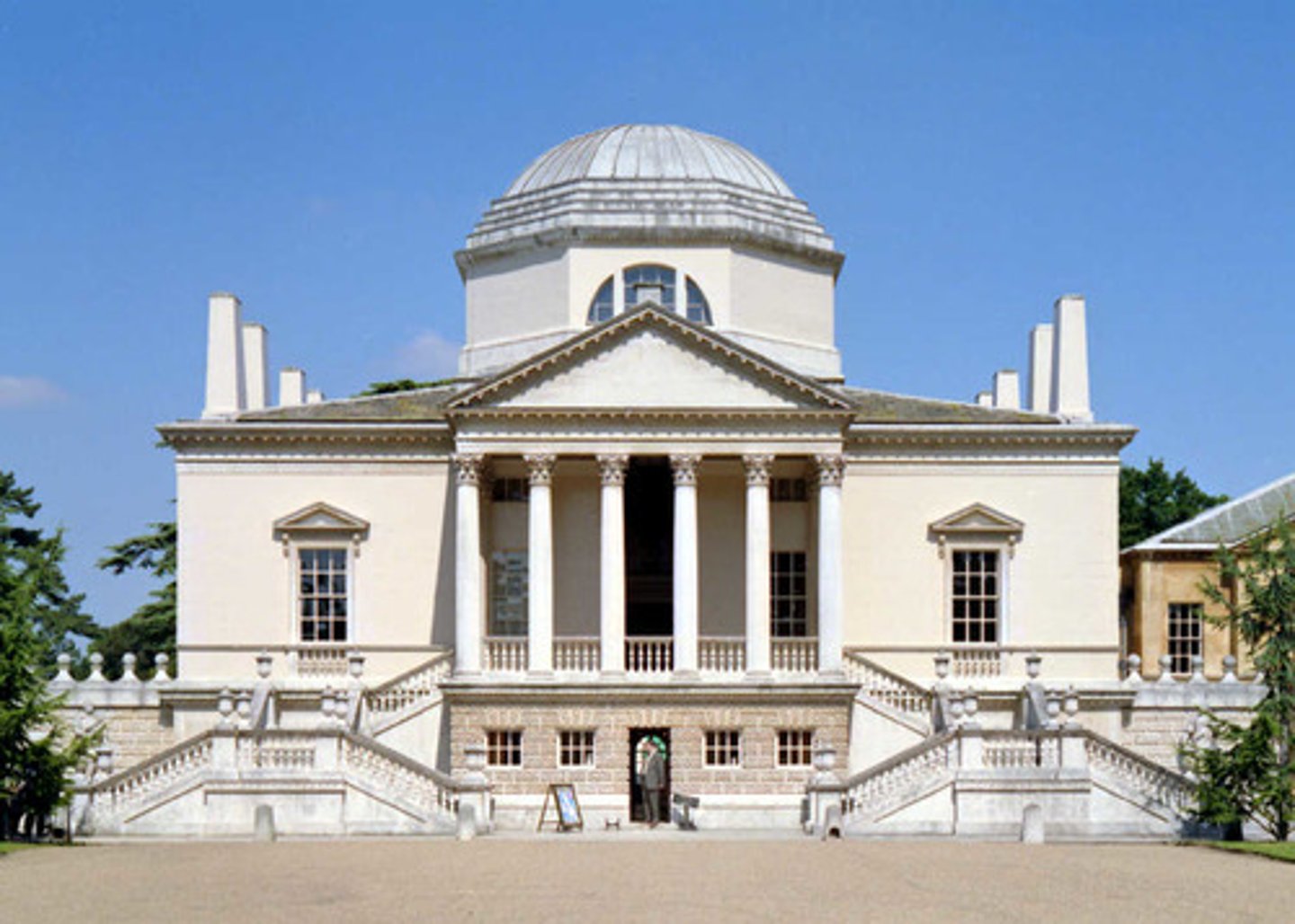
William Kent
English architect, landscape designer, and furniture designer who collaborated with his patron, the Earl of Burlington in the design of the Chiswick House. He was also the first one to use an integrative approach to architecture, landscape and furniture by making each other complimentary of each other.
Queen Anne Chair
This chair is characterized by curved lines, splats and cabriole legs. The seat of this chair is usually upholstered and shaped like a horse shoe. It is also design with carved scrolls and shells at the crown and knees
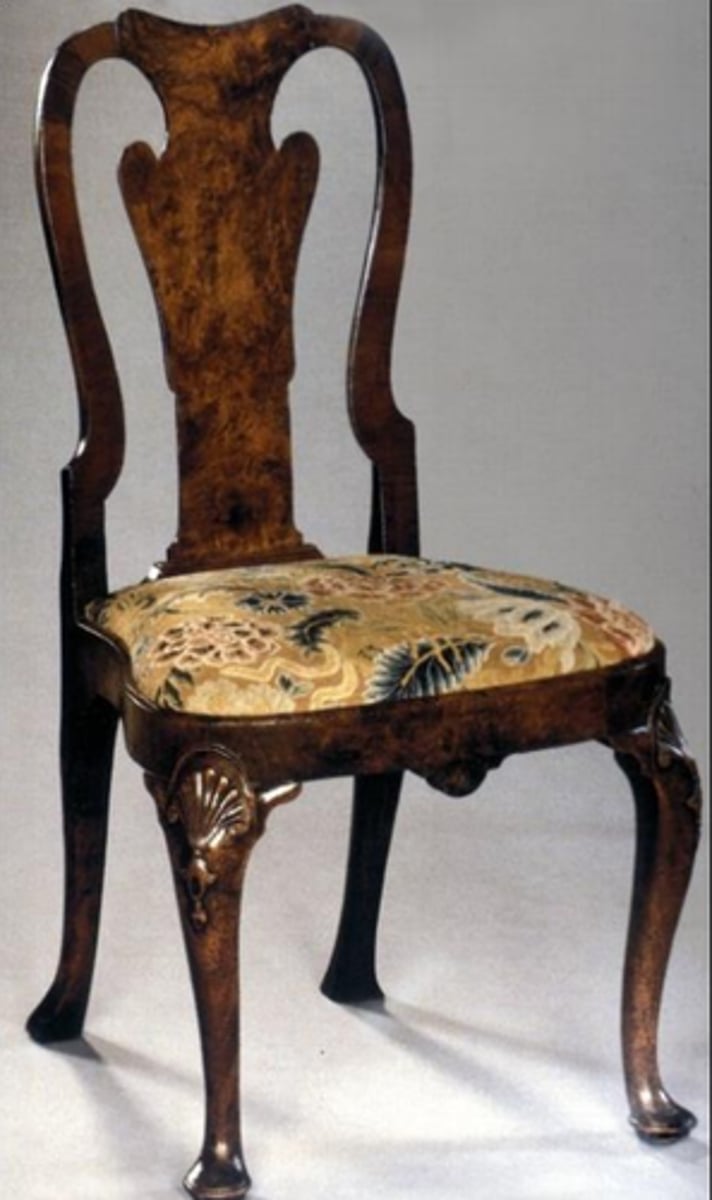
Windsor Chair
Wood chair whose back and sides consist of thin, turned spindles that are attached to a solid, sculpted seat. Its straight legs splay outward and its back reclines slightly. Comes in fan, hoop, comb, or arch back.
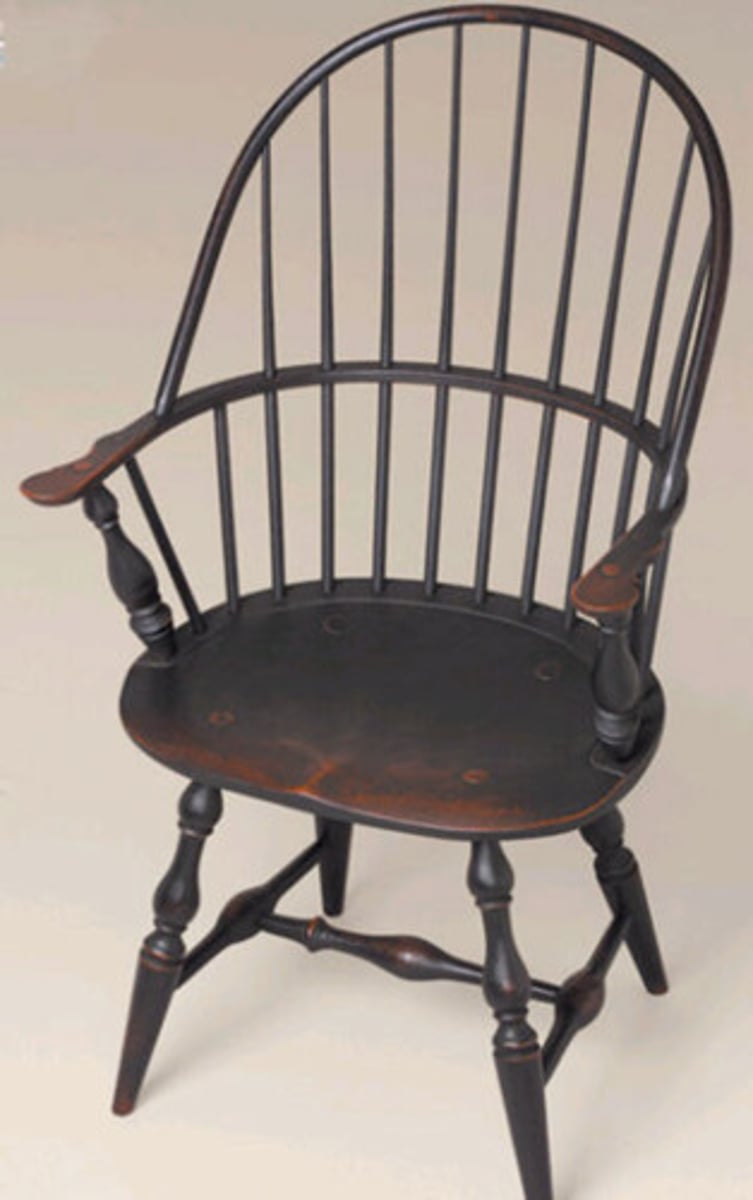
Cabochon
A gemstone that has been shaped and polished, as opposed to faceted. The resulting form is usually a convex obverse with a flat reverse. Cabochon was the default method of preparing gemstones before gemstone cutting developed.
Yoke back chair
A version of the Queen Anne chair with pierced splat and squared top rail.
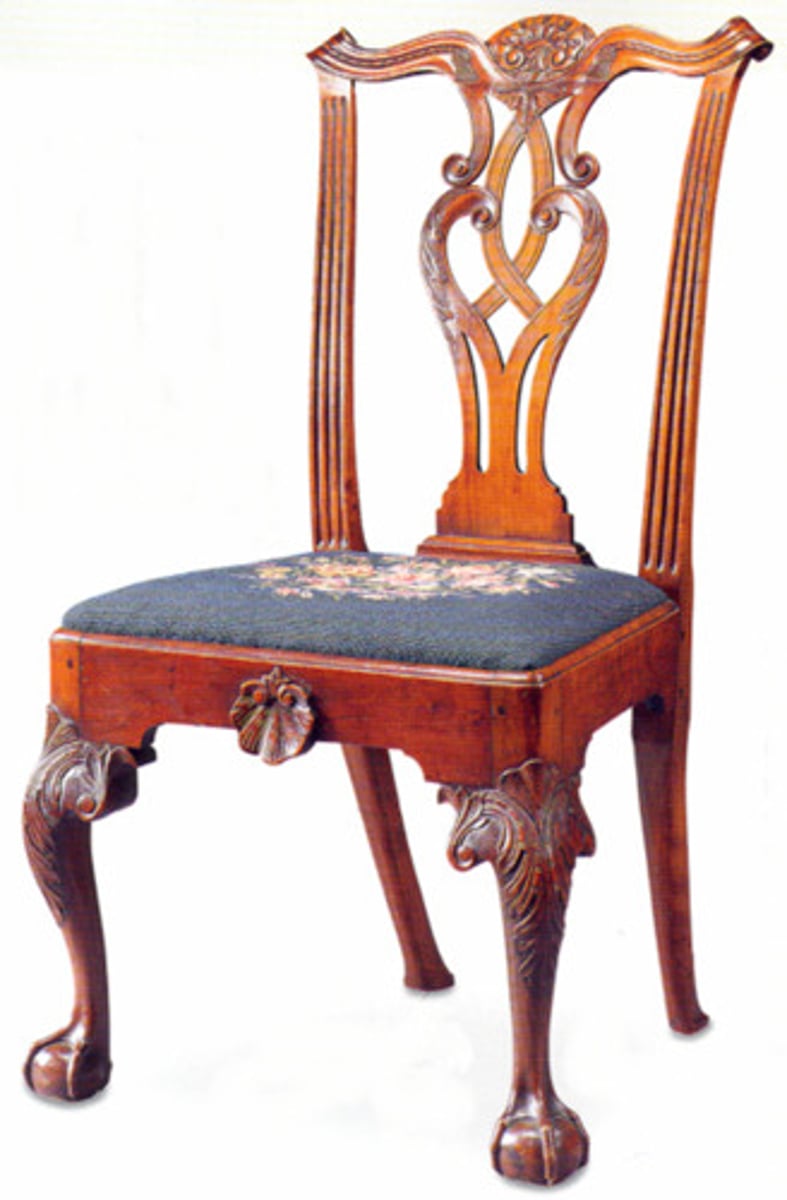
Miter chair
Also referred to as roundabout chairs. The chairs were first used in more private spaces within the home, including dressing rooms and gentlemen's bedchambers.
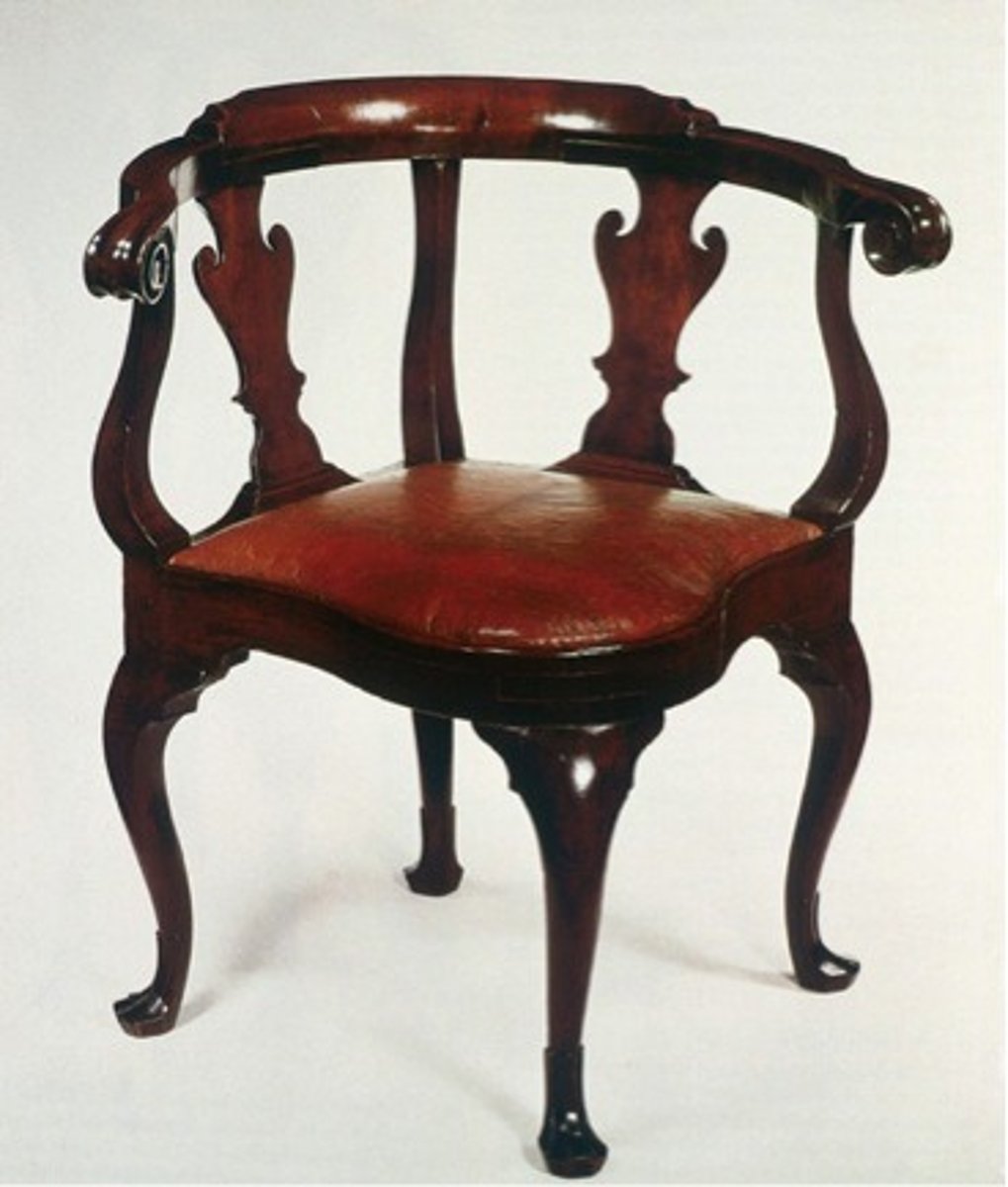
Piecrust table
Modern term for an 18th century small table with the top edge carved or molded in a series of small curves or scalloped resembling a pie crust.

Handkerchief table
A folding triangular table that becomes square when the drop leaf supported by a swinging leg is raised.
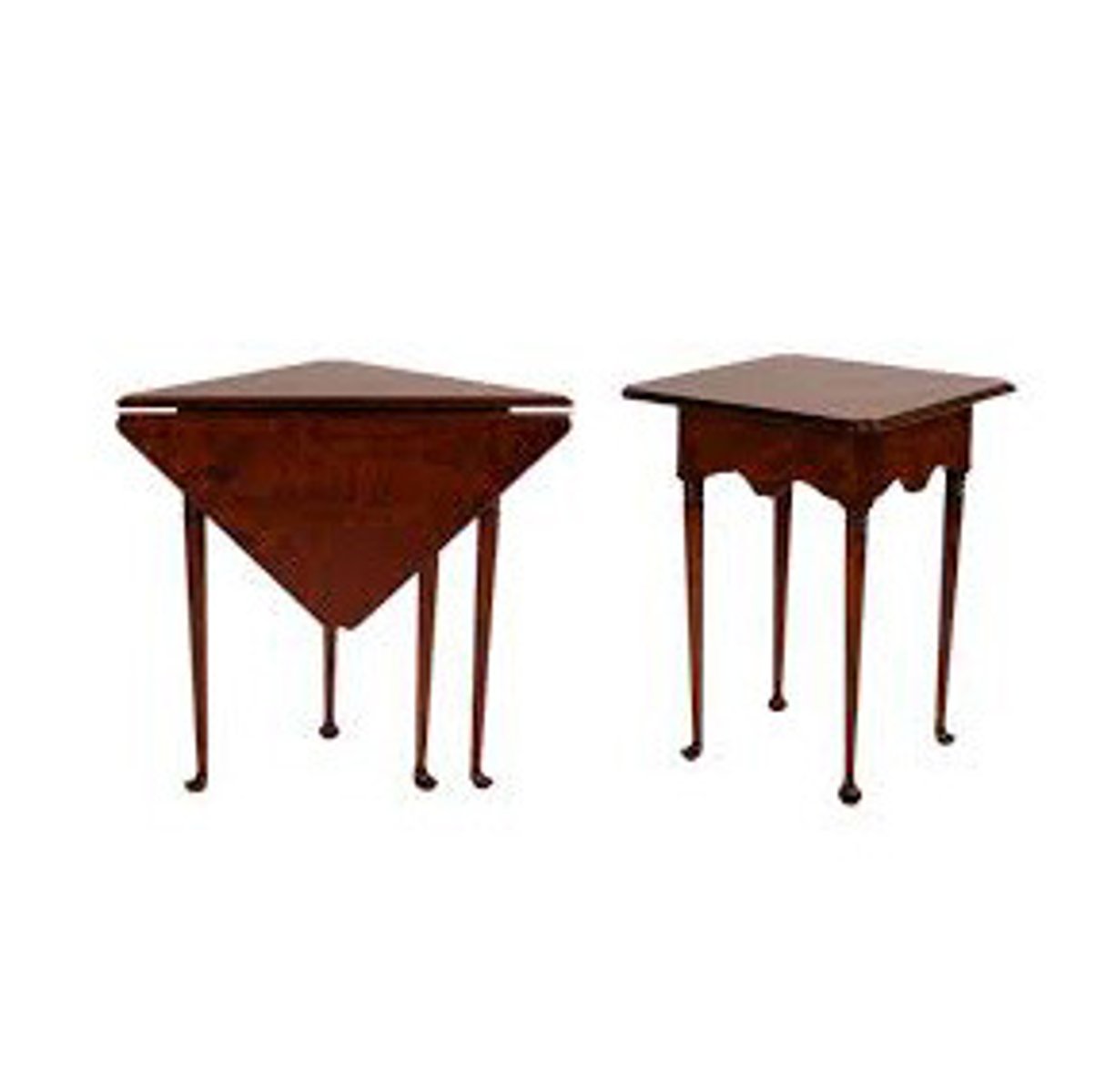
Middle Georgian
Decoration was characterized by curved lines, rocaille, cocailles, flowers, fruits, foliage, birds, animals, and human figures. Influences of style were Rococo, Gothic, and Chinese.
Thomas Chippendale
He was an English furniture designer; has become synonymous with best mid-18th century English mahogany furniture.
The Gentleman and Cabinet-Maker's Director
An imposing pattern-book for furniture by Thomas Chippendale. It provided patterns for a wide range of English furniture in the Rococo style and its Chinese and Gothic offshoots.
Ribband Back Chair
Chair designed by Thomas Chippendale with scroll and interlacing ribbon work at the back of chair.
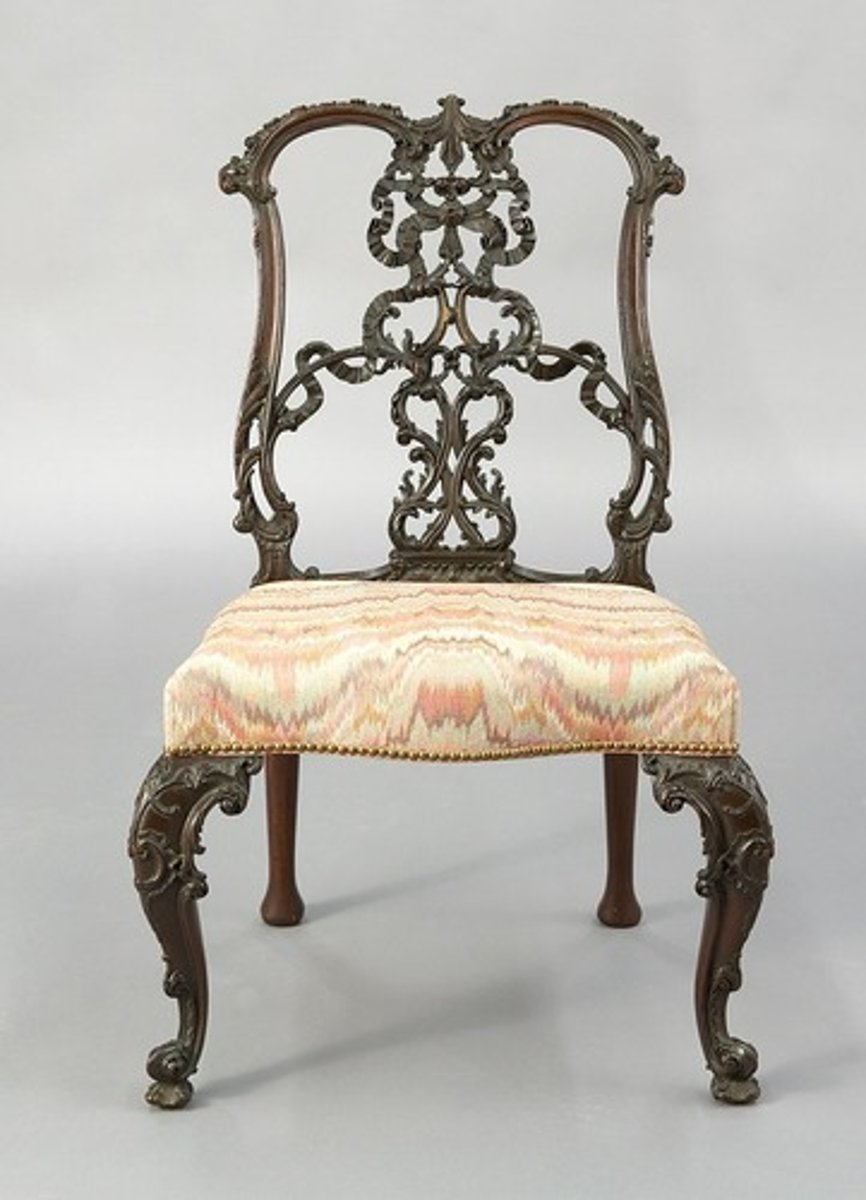
Chinese Chippendale chair
Chair designed by Thomas Chippendale featuring fretwork panels in the arms and the back of the chair.
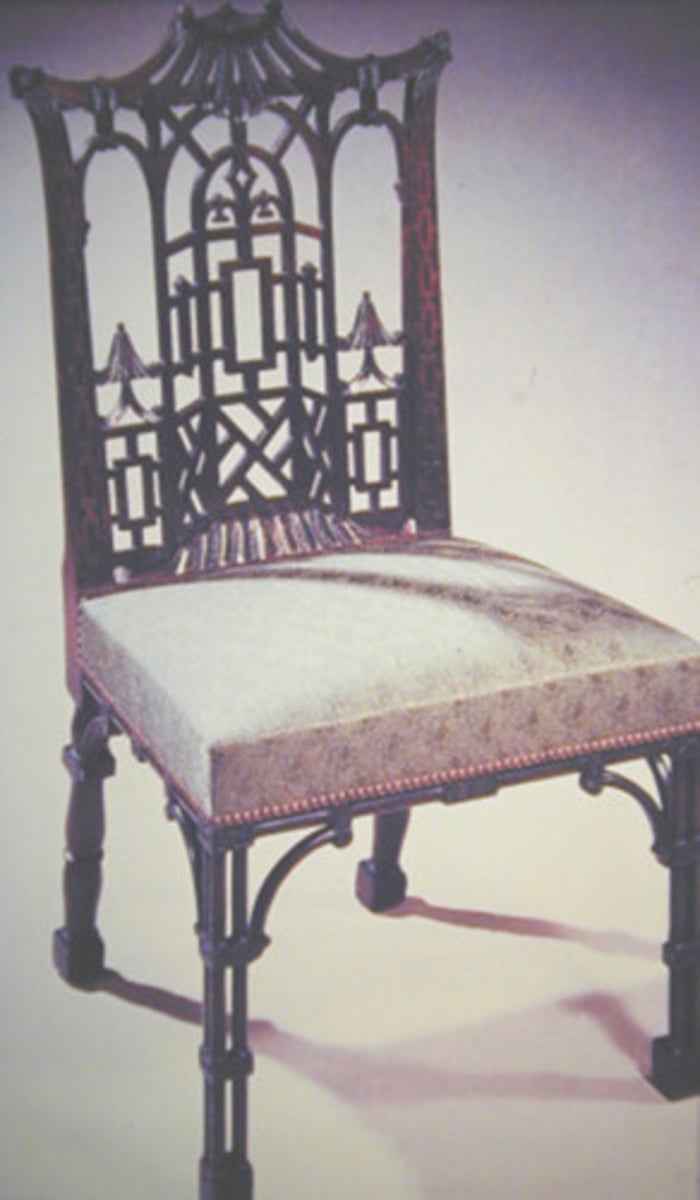
Marlborough leg
A heavy straight sometimes vertically grooved chair leg common in furniture of late Chippendale style.

Gothic Chippendale Chair
Chippendale chairs with pierced tracery work and arches at the back of the chair.
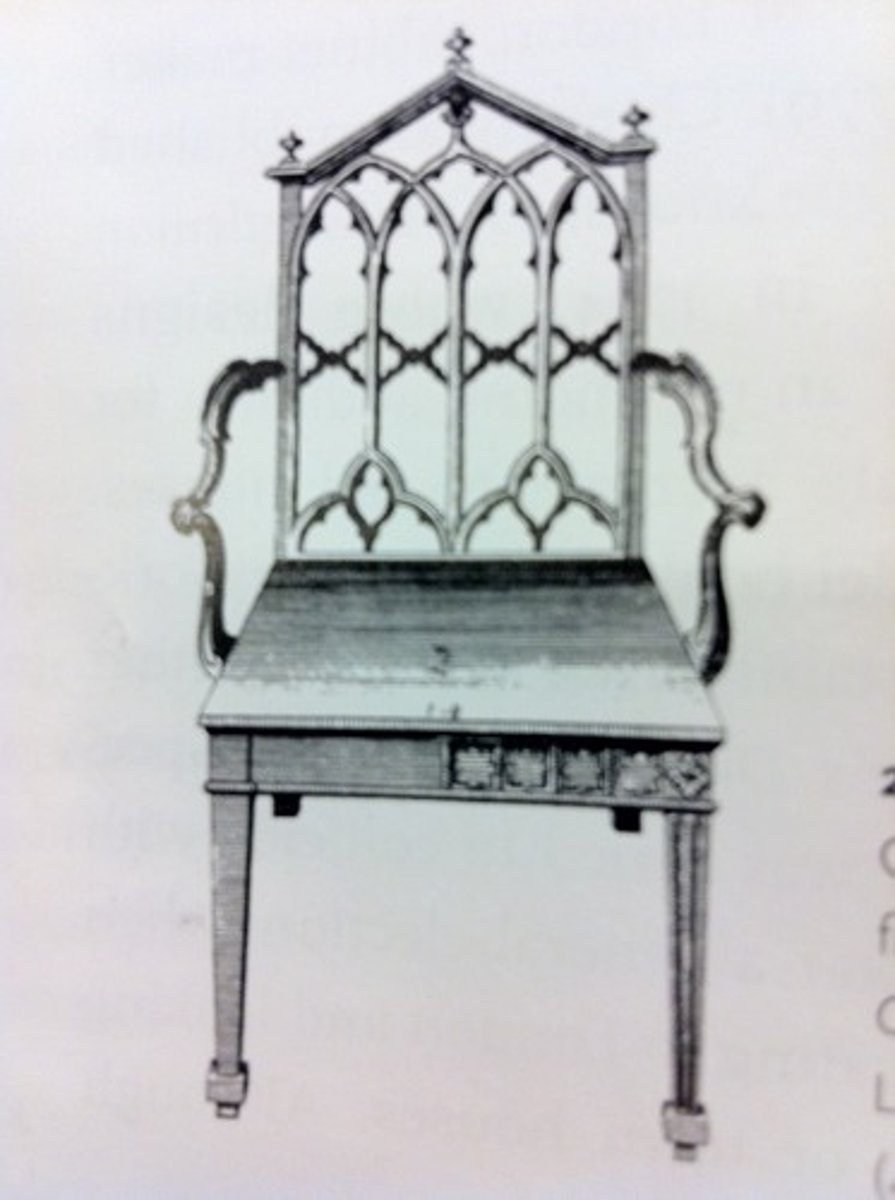
Pembroke table
Light drop leaf table designed for occasional use, probably deriving its name from Henry Herbert, Earl of Pembroke, a
noted connoisseur and amateur architect. It has two drawers and flaps on either side that can be raised by
brackets on hinges (known as "elbows") to increase size.
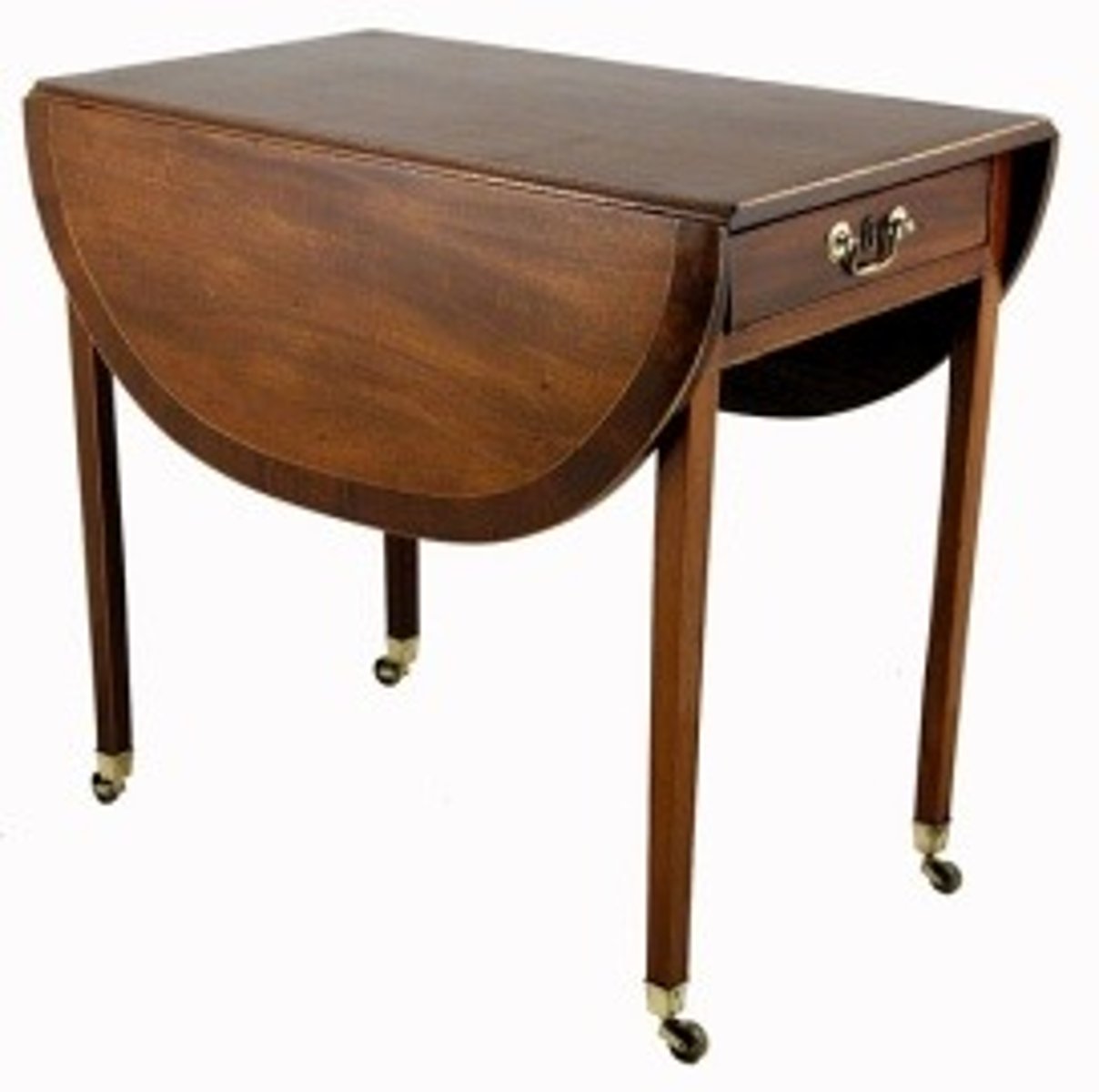
Piecrust tip-top table
A pedestal table with a hinged top which can be dropped vertically when not in use.
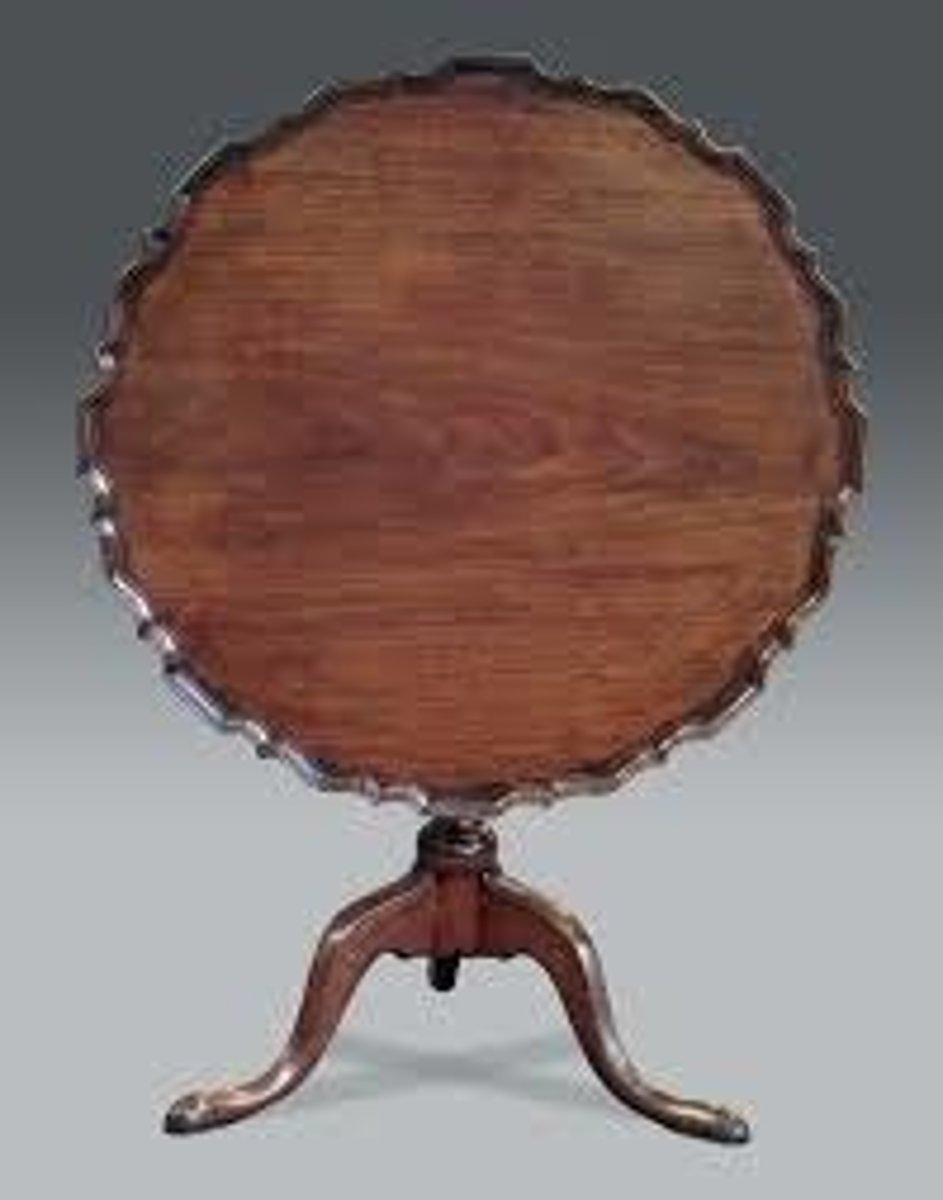
Robert Adam
Scottish architect and furniture designer who took the total integration of interior design to a new level never before seen in England. He is considered as the leader of classical revival
in England (both in architecture and interior design).
Adam Style
The term for the Neoclassical style in England, where it became closely associated with the work of the architect Robert Adam.
The Antiquities of Athens
James Stuart & Nicholas Revett's 1762 book which is the first accurate survey of ancient Greek architecture to ever be completed. This book is credited to be a big influence of Greek Revival.
Syon House
Designed by Robert Adam; It is a Neoclassical house in London which serves as the residence of the Duke of Northumberland. It rejects the Palladian revival but is inspired by Roman antiquity.
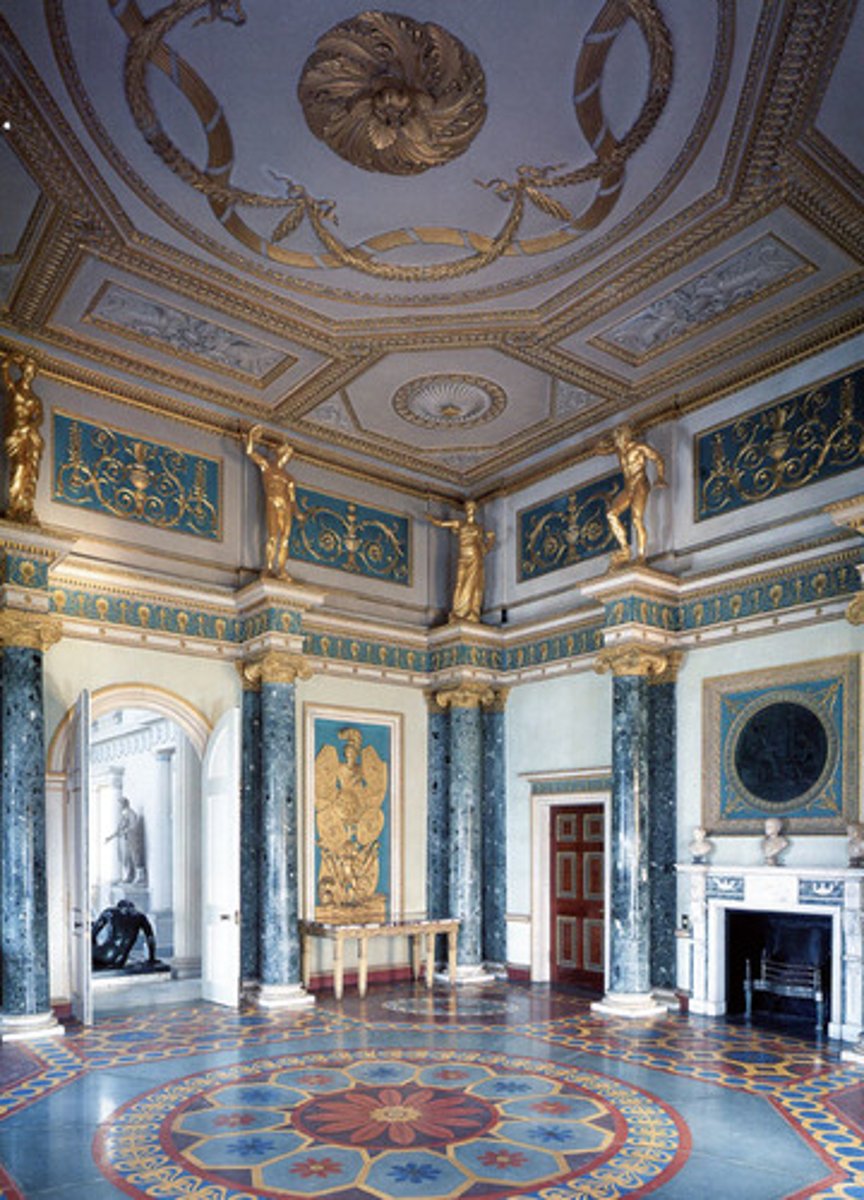
Marble Hall of Kedleston
The neoclassical interior of the house was designed by Adam to be no less impressive than the exterior. Entering the house through the great north portico on the piano nobile,
one is confronted by the marble hall designed to suggest the open courtyard or atrium of a Roman villa. Twenty fluted alabaster columns with Corinthian capitals support the heavily decorated, high- coved cornice. Niches in the walls contain classical statuary; above the niches are grisaille panels.
Shield Back Chair
A Hepplewhite chair that has a back whose short side posts support a shield-shaped framework.
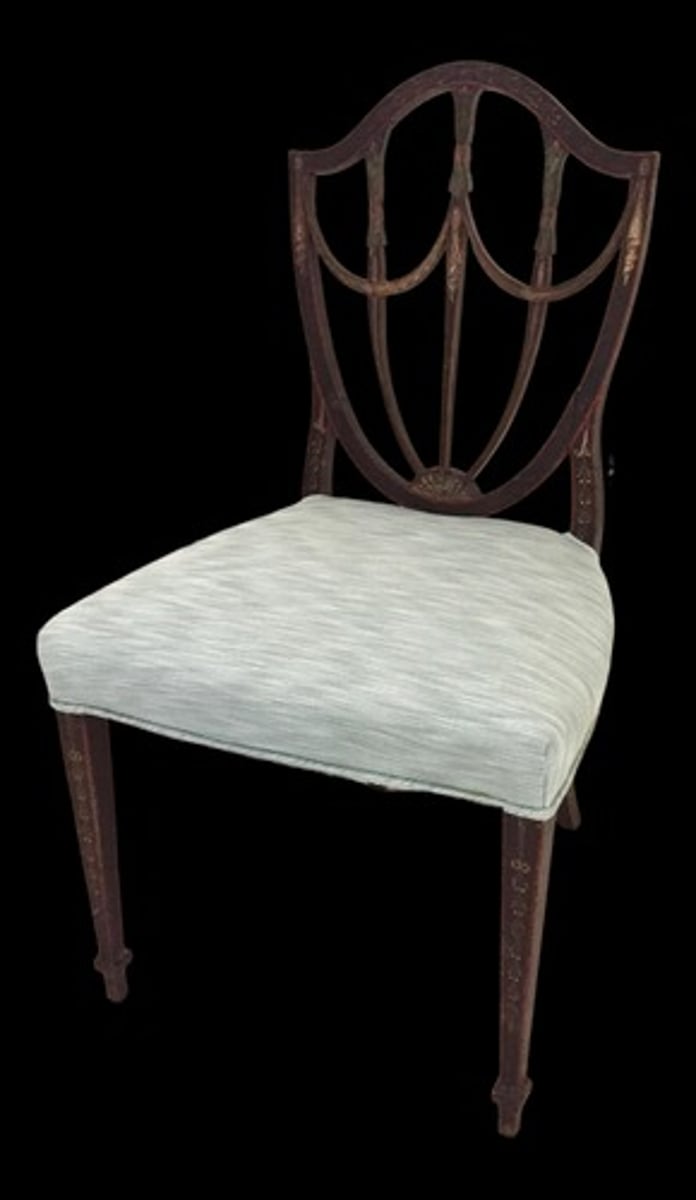
Prince of Wales Feathers Chair
Adam-style chair with backrest consisting of decorative carved or painted feathers.
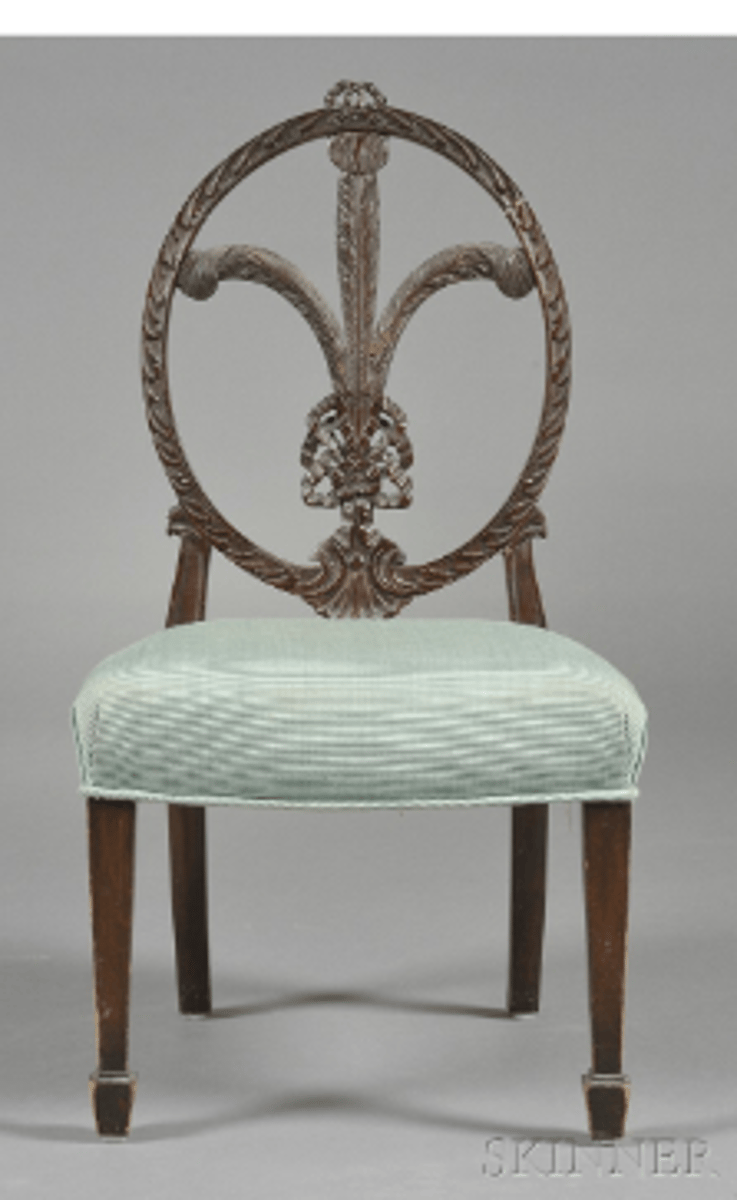
Radial Chair
Robert Adam chair with round or wheel-shaped back.
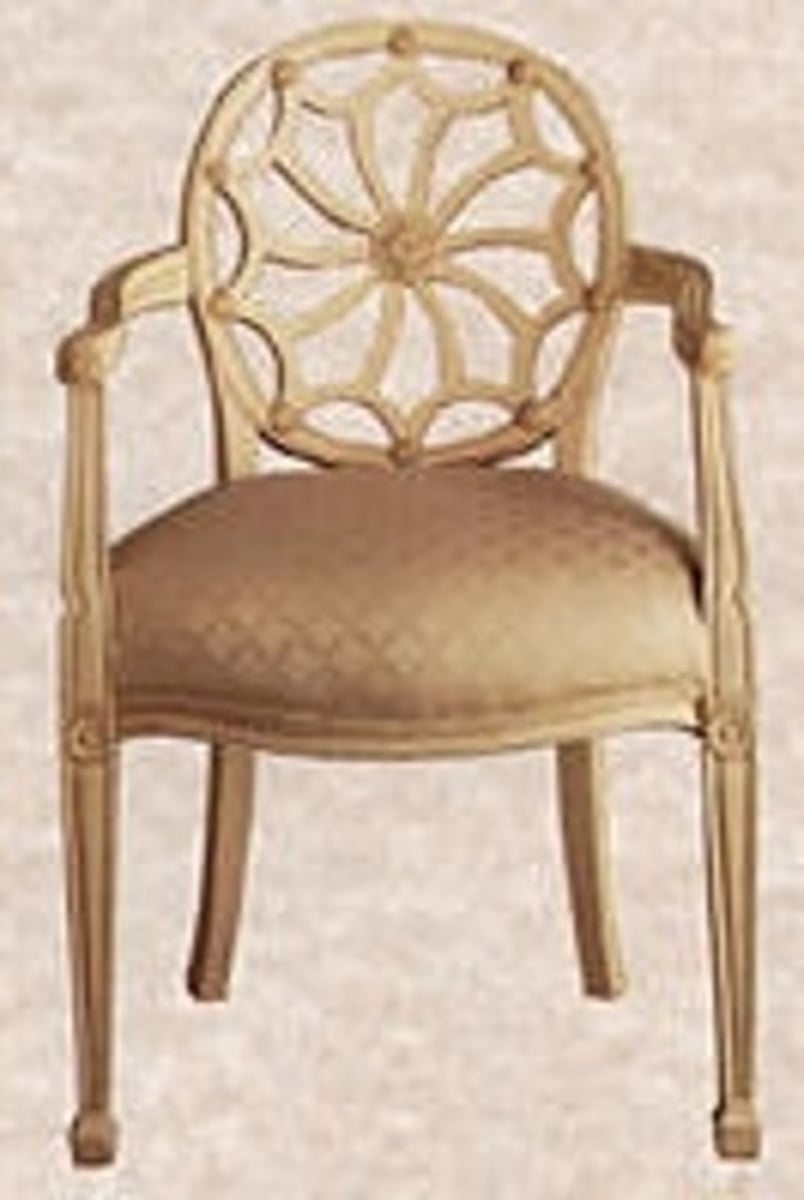
Side board
Piece of furniture designed to hold plates, decanters, side dishes, and other accessories for meal.
George Hepplewhite
English cabinetmaker and furniture designer whose name is associated with a graceful style of Neoclassicism, a movement he helped to formulate in the decorative arts. His furniture is associated with delicacy of line and proportion. He designed 5 distinct chair backs: shield, camel, oval, heart, wheel.
Interlaced heart back
Hepplewhite chair with a backrest resembling two overlapping hearts, hence the name.
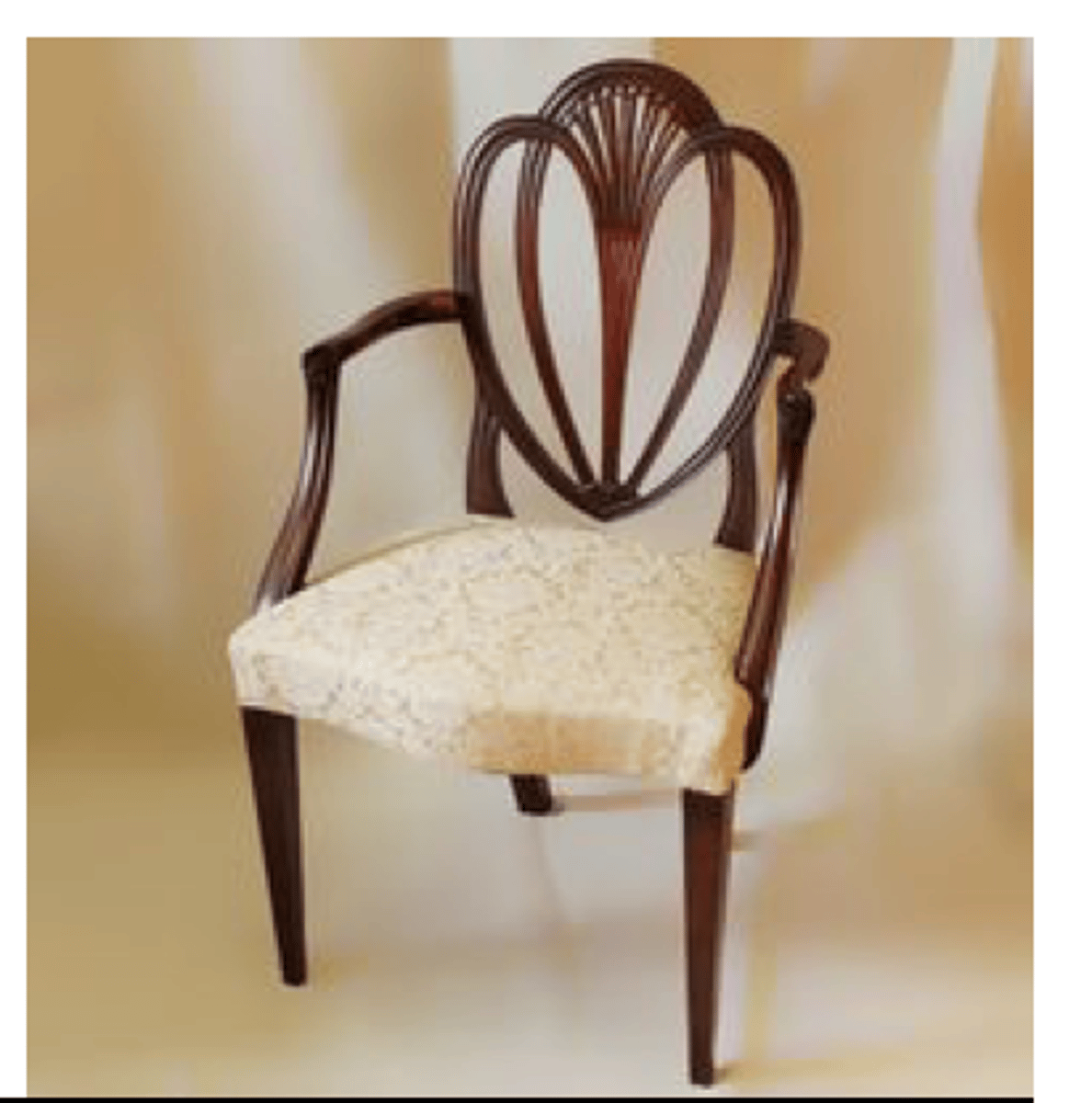
Camel Chair
Hepplewhite chair with a curved top rail reminiscent of a camel hump.
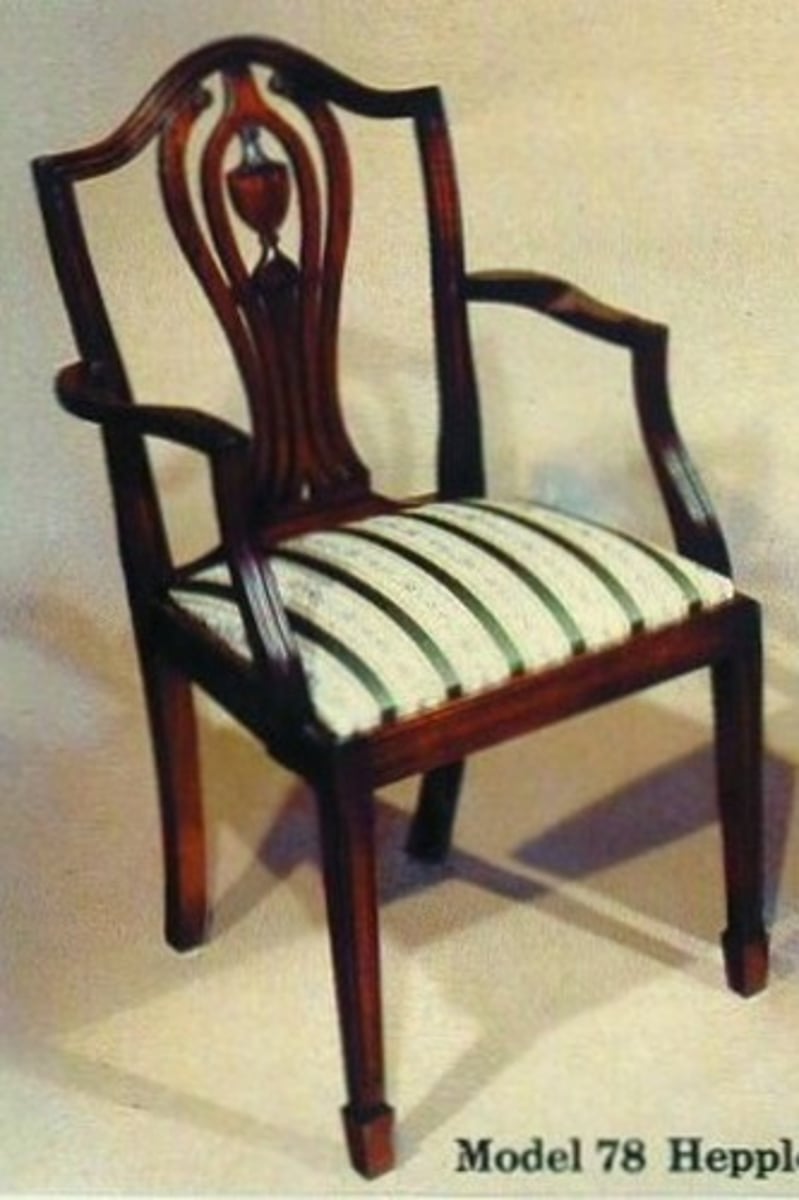
Thomas Sheraton
One of the big three English furniture designers of the 18th Century; He is called "The Apostle of Straight Line." His furniture is characterized by rectangular backs with splats of
interlacing rectangles, lyre or tripod.